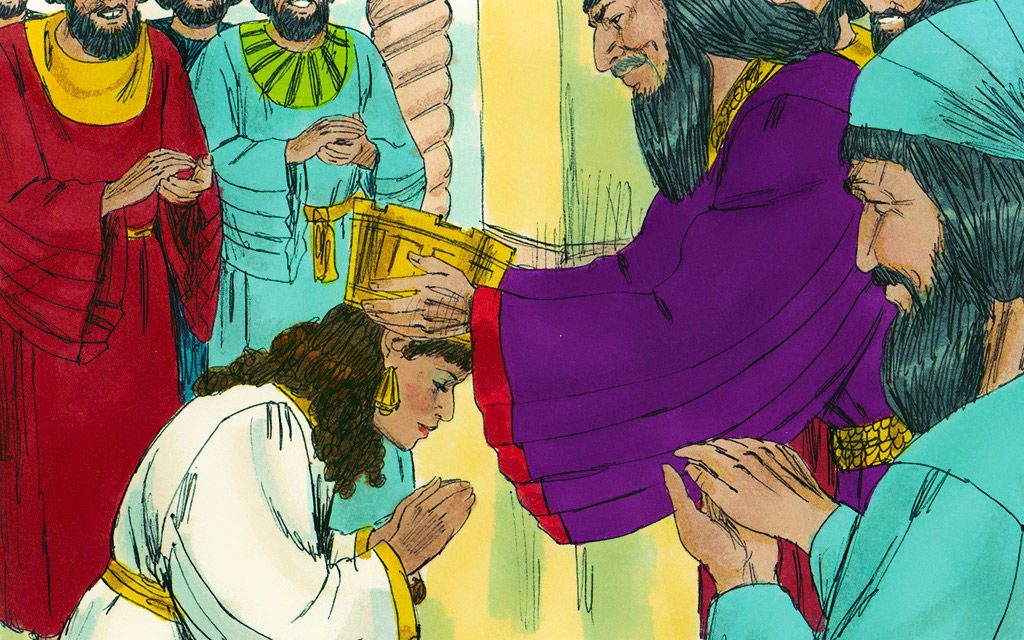Q: What excuse did Adam give to his children as to why he no longer lived in Eden? A: Your mother ate us out of house and home!
What is Discipleship?
The term is ambiguous in English. It can mean my discipleship, in the sense of my own pattern of following Jesus and trusting him and learning from him. That is my discipleship. It could mean that. Or it can mean my activity of helping others be disciples in that sense of learning from him, growing in him.
“People need to become Christians, and people need to be taught how to think and feel and act as a Christian. That is a disciple.”
The second meaning — helping others — does have a verb in New Testament Greek: mathēteuō, to make disciples. It can mean preach the gospel so that people get converted to Christ and become Christians and, thus, disciples. For example, Acts 14:21 says, “When they had preached the gospel to that city and made many disciples, they returned to Lystra and to Iconium.” So that “make disciples” is one Greek word there, and it means “get them converted to Jesus.” That is what it means.
Discussion
- When did you first come across the term?
- How would you describe being a disciple?
By definition, a disciple is a follower, one who accepts and assists in spreading the doctrines of another. A Christian disciple is a person who accepts and assists in the spreading of the good news of Jesus Christ. Christian discipleship is the process by which disciples grow in the Lord Jesus Christ and are equipped by the Holy Spirit, who resides in our hearts, to overcome the pressures and trials of this present life and become more and more Christlike.
This process requires believers to respond to the Holy Spirit’s prompting to examine their thoughts, words and actions and compare them with the Word of God. This requires that we be in the Word daily—studying it, praying over it, and obeying it. In addition, we should always be ready to give testimony of the reason for the hope that is within us (1 Peter 3:15) and to disciple others to walk in His way. According to Scripture, being a Christian disciple involves personal growth characterized by the following:
True Discipleship (William Macdonald)
The pathway to true discipleship begins when a person is born again. It
begins when the following events take place:
- When a person realizes that he is sinful, lost, blind and naked before
God. - When he acknowledges that he cannot save himself by good
character or good works. - When he believes that the Lord Jesus Christ died as his Substitute
on the Cross. - When by a definite decision of faith, he acknowledges Jesus Christ
as his only Lord and Saviour.
This is how a person becomes a Christian. It is important to emphasize
this at the outset. Too many people think that you become a Christian by
living a Christian life. NOT at all! You must first become a Christian before
you can live the Christian life.
The Terms of Discipleship
True Christianity is an all-out commitment to the Lord Jesus Christ.
The Saviour is not looking for men and women who will give their spare
evenings to Him—or their weekends—or their years of retirement.
Rather He seeks those who will give Him first place in their lives. “He looks today,
as He has ever looked, not for crowds drifting aimlessly in His track, but
for individual men and women whose undying allegiance will spring from
their having recognized that He wants those who are prepared to follow
the path of self-renunciation which He trod before them”1—H. A. Evan
Hopkins.
Nothing less than unconditional surrender could ever be a fitting response
to His sacrifice at Calvary. Love so amazing, so divine, could never be
satisfied with less than our souls, our lives, our all.
The Lord Jesus made stringent demands on those who would be His
disciples—demands that are all but overlooked in this day of luxury living.
Too often we look upon Christianity as an escape from hell and guarantee of heaven. Beyond that, we feel that we have every right to
enjoy the best that this life has to offer. We know that there are those
strong verses on discipleship in the Bible, but we have difficulty reconciling
them with our ideas of what Christianity should be.
We can accept the fact that soldiers give their lives for patriotic reasons.
We do not think it strange that Communists give their lives for political
reasons. But that “blood, sweat and tears” should characterize the life of
a follower of Christ somehow seems remote and hard to grasp.
And yet the words of the Lord Jesus are clear enough.
There is scarcely any room for misunderstanding if we accept them at their face value. Here
are the terms of discipleship as laid down by the Saviour of the world:
7 Terms we should soberly consider
A supreme love for Jesus Christ.
“If any man come to me and hate not his father, and mother, and wife, and
children, and brethren, and sisters, yea, and his own life also, he cannot
be my disciple” (Luke 14:26).
This does not mean that we should ever have animosity or ill-will in our hearts toward our relatives, but it does mean that our love to Christ should be so great that all other loves are
hatred by comparison. Actually, the most difficult clause in this passage is the expression, “yea, and his own life also.” Self-love is one of the stubbornest hindrances to discipleship. Not until we are willing to lay down our very lives for Him are we in the place where He wants us.
A denial of self.
“If any man will come after me, let him deny himself…” (Matthew 16:24).
Denial of self is not the same as self-denial. The latter means foregoing certain foods, pleasures, or possessions. But denial of self means such complete submission to the lordship of Christ that self has no rights or authority at all. It means that self-abdicates the throne. It is expressed in the words of Henry Martyn,
“Lord, let me have no will of my own, or
consider my true happiness as depending in the smallest degree on
anything that can befall me outwardly, but as consisting altogether in
conformity to Thy will.”
My glorious Victor, Prince divine,
Clasp these surrendered hands in Thine,
At length my will is all thine own,
Glad vassals of a Saviour’s throne”
H. G. C. Moule
A deliberate choosing of the cross.
“If any man come after me, let him deny himself and take up his cross…”
(Matthew 16:24).
The cross is not some physical infirmity or mental anguish; these things are common to all men. The cross is a pathway that is deliberately chosen. It is “a path which so far as this world goes is one of dishonour and reproach”—C. A. Coates. The cross symbolizes the shame, persecution and abuse which the world heaped upon the Son of God, and which the world will heap on all who choose to stand against the tide. Any believer can avoid the cross simply by being conformed to the world and its ways.
A life spent in following Christ.
“If any man come after me, let him deny himself, and take up his cross,
and follow me” (Matthew 16:24).
To understand what this means, one need simply ask himself, “What characterized the life of the Lord Jesus?”
It was a life of obedience to the will of God. It was a life lived in the power of the Holy Spirit. It was a life of unselfish service for others. It was a life of patience and longsuffering in the face of the gravest wrongs. It was a life of zeal, of expenditure, of self-control, of meekness, of kindness, of faithfulness and of devotion (Galatians 5:22, 23). In order to be His disciples, we must walk as He walked. We must exhibit the fruit of Christlikeness (John 15:8).
A fervent love for all who belong to Christ.
“By this shall all men know that ye are my disciples, if ye have love one to
another” (John 13:35).
This is the love that esteems others better than oneself. It is the love that suffers long and is kind. It vaunts not itself and is not puffed up. It does not behave itself unseemly; seeks not its own, is not easily provoked; thinks no evil. It bears all things, believes all things, hopes all things, and endures all things (1 Corinthians 13:4-7). Without this love, discipleship would be a cold, legalistic asceticism.
An unswerving continuance in His Word.
“If ye continue in my word, then are ye my disciples indeed” (John 8:31).
For real discipleship there must be continuance. It is easy enough to start well, to burst forth in a blaze of glory. But the test of reality is endurance to the end. Any man who looks back after putting his hand to the plot is not fit for the kingdom of God (Luke 9:62). Spasmodic obedience to the Scriptures will not do. Christ wants those who will follow Him in constant,
unquestioning obedience. Keep me from turning back The handles of my plough with tears are wet, The shears with rust are spoiled, and yet, and yet, My God! My God! Keep me from turning back.
A forsaking of all to follow Him.
“So likewise, whosoever he be of you that forsaketh not all that he hath,
he cannot be my disciple” (Luke 14:33).
This is perhaps the most unpopular of all Christ’s terms of discipleship, and may well prove to be the most unpopular verse in the Bible. Clever theologians can give you a thousand reasons why it does not mean what it says, but simple disciples drink it down eagerly, assuming that the Lord Jesus knew what He was saying.
What is meant by forsaking all?
It means an abandonment of all one’s material possessions that are not absolutely essential and that could be used in the spread of the gospel. The man who forsakes all does not
become a shiftless loafer; he works hard to provide for the current necessities of his family and himself. But since the passion of his life is to advance the cause of Christ, he invests everything above current needs in the work of the Lord and leaves the future with God. In seeking first the
kingdom of God and His righteousness, he believes that he will never lack food and clothing. He cannot conscientiously hold on to surplus fun when souls are perishing for want of the gospel.
He does not want to waste his life accumulating riches that will fall into the devil’s hands when
Christ returns for His saints. He wants to obey the Lord’s injunction against laying up treasure on earth. In forsaking all, he offers what he cannot keep anyway, and what he has ceased to love.
These then are the seven terms of Christian discipleship. They are clear and unequivocal. The writer realizes that in the act of setting them forth, he has condemned himself as an unprofitable servant. But shall the truth of God be forever suppressed because of the failure of God’s people? Is it not true that the message is always greater than the messenger? Is it
not proper that God be true and every man a liar? Should we not say with an old worthy, “Thy will be done though in my own undoing.”















